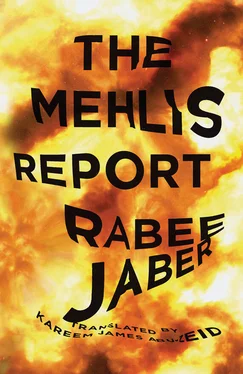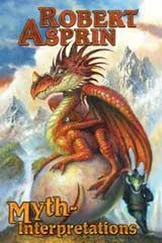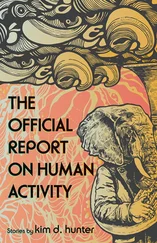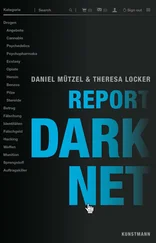This humidity in the air. Will summer never be over? Beirut’s summer is long, endless: the mosquitoes are hatching once more. He sees a policeman inspecting a blue Datsun parked in front of the Mexico Villa. He sees a woman loaded with heavy bags leaving Monoprix. Where’s her maid? From the looks of her, she has a maid. So why is she shopping alone?
Cars pack the broad sloping road in front of the ABC Mall. Their horns fill the air with noise: traffic is backed up. Angry faces, and laughing ones. He steps onto the sidewalk, his gaze directed at the café high up on the ABC terrace. Before he can lift his gaze even higher — to the sky — the cell phone in his pocket vibrates. He shifts the box of cakes to his other hand and pulls out his phone. That strange number again! Who is it? The ringing stops just as he tries to answer. He wants to answer the phone and speak. But the line is gone, and there’s nothing left but the mournful dial tone.
Delicious smells accost him in front of the shawarma restaurant, and in front of the Viva Taxi office, and then from the falafel place. Inside the taxi office, the drivers are gathered around a wooden board they’ve set between two chairs. As he passes by, Saman Yarid sees a can of hummus, a plate with sliced tomatoes, and a platter of small sardines. Fish? At this hour? They’re drinking arrack, and they all — very unusually for them — have serious looks on their faces as they eat. Where are the bursts of laughter? Saman feels some pressure in his chest. There’s that pain again. He needs to go get his annual physical. Heart disease is hereditary. High blood pressure is hereditary. Diabetes is hereditary. You’re born with diseases lurking inside you. He needs to go get his annual physical.
He looks at his watch: he can walk around a bit longer. His watch is from Naoum Mouzannar. They’re his relatives. They have a store in the Bab Idris district beside the MEA office, and another one at the intersection of Weygand and Abd al-Malik Street on the ground floor of the Municipality Building. They didn’t start out making watches. The grandfather of the family, Naoum Mouzannar, was Beirut’s most famous jeweler in the old days. Saman Yarid’s grandmother said that Ibn Mouzannar provided the women of the Khedive’s household with sets of gold jewelry — Khedive Ismail’s wife wore diamond necklaces made by Naoum Mouzannar’s own two hands.
When he walks out of the elevator, he finds Cecilia waiting for him. She’s standing in the wide-open doorway to her apartment, her laughing face washed in the yellow electric light. She’s brushed her black hair, straight and long, to one side. Her neck is pure white, and she’s wearing a gleaming black dress he’s never seen before. She seems tall: high heels, and her long dress. The color of her hair: it’s actually brown — this is the first time she’s ever dyed it black. He says she looks like a new woman. She laughs as she pulls him into the apartment.
He asks her if she wants to go out.
No, not now, she says.
They start laughing for no apparent reason. She laughs first, and then he takes it up. This kind of spontaneous overflowing laughter doesn’t come often, but when it does come he always tries to let it wash over him. He loves immersing himself in Cecilia’s laughter. The box of cakes remains on the small table in the hallway. Cecilia draws him to her bed.
He feels his heartbeat quicken as he embraces her. The palpitations are not what concern him, but rather the murmur. He seems to hear a murmur. And there’s that light pain. But the pain presently recedes. He gets on top of her, but she pushes him away, laughing, and stands up.
“You haven’t said congratulations.”
She takes off the dress and throws it on the chair, then flops down beside him. He whispers something inaudibly. She knows he doesn’t want to talk now. Cecilia knows him well.
As he strokes her shoulder and kisses her back, he feels his heartbeat take on a steady rhythm, one it hasn’t had in years. Desire wells up in him, and her pitch-black hair shimmers. He feels an immense calm come over him. Her alabaster skin. The familiar freckles. Her fingers on his side. Their bodies embracing. They merge, melt into one another. This peace he’d lost, where is it returning from? He forgets the world. He forgets where he’s spent that day, and where he’s spent all the others. He forgets Yara and the Chinese food and the overwhelming emotion of their embrace in front of the parking lot by the fountains. He forgets all the roads he crossed from Ghandour al-Saad Street to this room. He forgets Mary’s phone call, and Emily’s too (did all that happen in a single day?), and he forgets the unknown phone calls. He plunges into Cecilia’s body as if into a stream, losing himself within her, looking for more time, for a little more time, for just a bit more time within her, he doesn’t want to leave her now, he wants to sink into this woman, to sink deeper and deeper and deeper. And all of this just because she dyed her hair? All of this just because she was standing, aglow, in front of her door and waiting for him, gazing at him, gazing with large eyes, her ivory neck gleaming between her black hair and the black folds of her dress? Had he not known her all these days and weeks and months? Had they not sat for long hours in front of the TV, after the bedroom, and before the bedroom too, like any other man and woman, even like a husband and wife? They’ve been seeing each for a long time, casually coming and going in each other’s lives, so what’s happening to him tonight? Where is this strange feeling coming from?
She whispers something, utters words while moaning in his ear. He doesn’t hear the words, but now he can feel her fingers unfolding, stretching across his shoulders, her two hands snatching at his bones, clinging to his body. Why is she holding onto him like this? Where is she? He’s only heard that overflowing laugh on rare occasions. She tends toward melancholy, Cecilia. She has not lived the life she asked for. She had loved a man. And the war killed him. A shard. A shard smaller than a lentil. The bomb that exploded in front of the car did not harm him. He was getting out of the car when the bomb went off. The bomb itself did not harm him. But a piece of iron smaller than a chickpea pierced his heart.
What’s she whispering in his ear now? Saman can’t hear Cecilia’s words. She falls silent. Neither of them is speaking now. They melt into each other like wax statues. Like soft ivy they intertwine. This room, at this hour, is outside the world. This isn’t Beirut.
They whisper to each other. It’s quiet now. The curtains do not move. Air enters through the blinds, they can feel it, but the curtains do not move.
He asks about the job she was offered. “It’s no longer offered,” she says. He asks what happened. “You’re sleeping with the new kitchen manager of the Achrafieh branch of Monoprix,” she replies. She laughs as she pulls up the sheets to cover her stomach. Air sneaks in through the blinds; and with the air, the sounds of the city. He asks when she’s starting her new job. She says she can start the day after tomorrow. He asks if it’s better than cooking at Spinney’s, asks what her workday will be like. She laughs and falls silent, then suddenly looks sad. “Why do you ask?” she wants to say, but she keeps quiet. She feels an emptiness in her chest. Saman Yarid feels hollow as well.
She makes some tea while they smoke in the kitchen. He asks if she wants to eat out somewhere. She says she did earlier, but now she feels a bit tired and would rather stay in. Let’s order something if you’re hungry, she says, let’s order something from Kaakat or Pizza Hut, or if you like it, I can make something quickly, there’s iceberg lettuce and feta cheese and tomatoes in the fridge, I can make you a Greek salad, and I’ve got basil too, or I can make you some spaghetti, are you hungry?
Читать дальше












